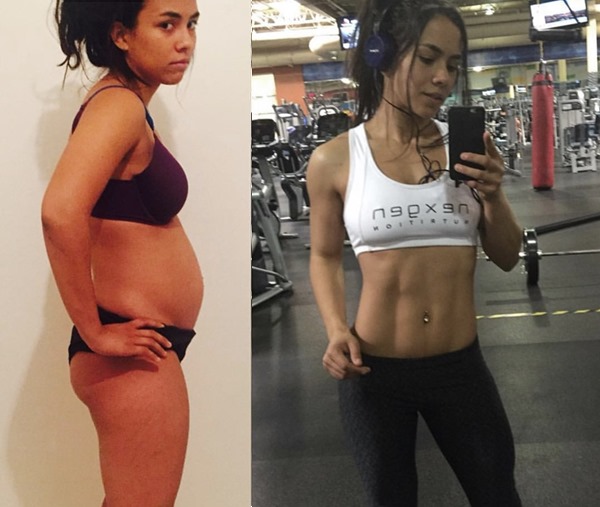Bob Kupniewski from simplyshredded.com got the chance to ask Alan Aragon a nutrition guru and expert author over here a couple questions regarding his training, diet and supplementation principles
How did you get associated with Bodybuilding?
I’ve admired great physiques for as long as I can remember. I think a great physique is an effective way to gain instant admiration and influence – without saying a word. That’s power. While I’ve never competed, and in all likelihood never will, I’ll always be a fan of the sport. I admire the discipline, consistency, and brotitude involved. Bodybuilding is a great hobby because you basically set your own rules, and your main competition is you. To me it’s a lonewolf kind of endeavor where you chisel out your own work of art at your own pace. If you can continually improve, you win. I like the simplicity of that.
When trying to cut down , what are your thoughts on HIIT and LISS Cardio?
I can’t really stand either one, to tell you the truth. Cardio is grossly overrated, and is not an absolute necessity for everyone who wants to lean down. For the most part, a calorie deficit is a calorie deficit. Weight training can easily cause the cardiovascular adaptations that people seek through cardio, with the added benefit of supporting lean body mass & strength. I’m a strong proponent of doing the least amount of formal cardio as necessary to reach the goal, starting with zero.
Achieving the goal with the least amount of ‘formal’ cardio has the following benefits, in no particular order of importance:
- It saves time.
- It prevents joints from incurring overuse injuries.
- It promotes better recovery from weight training, particularly in the muscles that might experience work-overlap (ie, the legs).
- Resistance training has plenty of cardio-respiratory & cardiovascular effects on its own, as long as you’re not training like a pure powerlifter with long rest periods between all sets.
- Cardio is a good ‘trump card’ to use if/when fat loss plateaus arise and other options are maxed out. If you use the card right from the outset, you won’t have any cards to pull when you need them. It can always be added incrementally on an as-needed basis. This achieves the underlying goal of doing the minimum amount of work required to reach & maintain the goal. If your goal was to become a better runner, cyclist, swimmer, etc for performance or endurance’s sake, then the protocol would definitely incorporate the training of those qualities through cardio. However, cardio simply is not mandatory or optimal for other non-endurance pursuits – given that a sound resistance training protocol is maintained. I would also add to this that if someone ENJOYS cardio, there’s no reason in particular to avoid it. Just watch for the common tendency to overdo it.
With all of that said, I think that HIIT or LISS cardio should be done on the basis of personal preference and orthopedic (& cardiac) tolerance.
Some people are just not cut out for HIIT, so LISS is their better option. Those who can physically handle high-intensity or high-impact stuff, and don’t have a lot of spare time & patience, HIIT is the ticket. Both accomplish the same thing, but use different routes to get there; one is not blanketly ‘better’ than the other. HIIT is more stressful on the body, but it’s more time-efficient. LISS is time-consuming, but less risky, and less prone to interfere with recovery from weight training. Pick your personal poison. Also note that there’s nothing wrong with doing both on an alternating or combined basis.
What are good tips of dieting for an average bodybuilder?
Don’t expect your fat to melt off your body like candles in a fireplace.
It takes time. The more fat you have to lose, the quicker it will come off (overweight folks can expect 2-3 lbs lost per week). The less you have to lose the slower it will come off (average folks can expect 1-2 lbs lost per week, lean folks half that at most). I’d rather see people set 6-12 month goals than 6-12 week goals. Crash dieting for an event or a shoot is a different story, but the trick is to not let yourself get cornered into the position of crash-dieting. Pics & clothing fit tell a whole lot more than the scale. Bodyfat measuring devices all have their built-in error margins, so take those readings with a grain of salt. Pics don’t lie (neither does video). One last thing I want to add is that very few people have the genetics and/or the drugs to achieve the same level of physique as their idols. People should focus on progress, not perfection.
What supplements do you consider “essential”?
A cheap multi and fish oil for those who don’t regularly eat fish. Those who avoid dairy can benefit from a calcium/vitamin D supplement. I don’t really see protein powder as much as a supplement as it is a convenient food product. Beyond that, the only legal stuff that really works is creatine. People get a boner over BCAA supps but don’t realize that about 20% of their protein intake consists of BCAA. Fat burner supps for the most part suck ass, especially in habitual caffeine consumers. Nevertheless, all supps work if you take it with a dose of expectation bias from believing in their marketing. The placebo effect is the most powerful supplement of all.
What are your future plans?
 My future plans are to keep doing what I’m doing. I’ve been at this for almost 20 years, and all that’s left is to keep improving my research review as much as I can. I also want to keep my clients happy, raise my kids properly, and trick my wife into thinking I’m irresistible.
My future plans are to keep doing what I’m doing. I’ve been at this for almost 20 years, and all that’s left is to keep improving my research review as much as I can. I also want to keep my clients happy, raise my kids properly, and trick my wife into thinking I’m irresistible.
What is your favorite quote?
“A life spent chasing dreams that never come true is better than a life spent running away from dreams that could have.” – Alan Aragon
Website: http://www.alanaragon.com/










